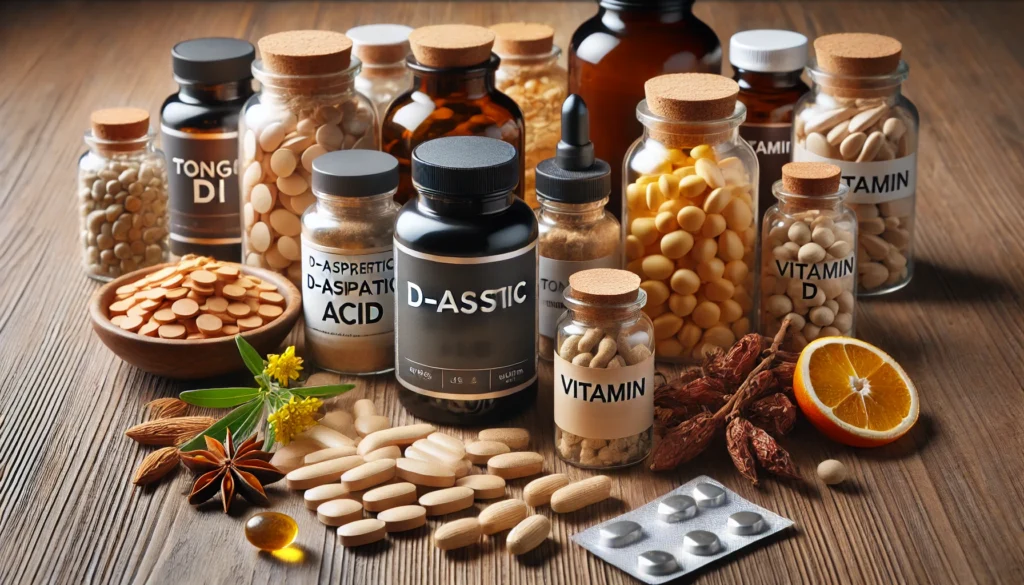Introduction: The Testosterone Puzzle
Did you know that approximately 39% of men over 45 have low testosterone levels? This startling statistic highlights a growing concern in men’s health that goes far beyond mere muscle mass or libido. Testosterone plays a crucial role in overall male well-being, influencing everything from energy levels and muscle strength to mood and cognitive function.
Low testosterone can manifest through a range of symptoms: persistent fatigue, reduced muscle mass, decreased sexual drive, mood fluctuations, and even cognitive fog. But here’s the good news – there are numerous natural strategies to help boost and maintain healthy testosterone levels.
As a health expert specializing in men’s sexual health, I’ve spent years researching and understanding the intricate world of hormonal balance. This guide will walk you through scientifically-backed, practical methods to naturally increase your testosterone levels and reclaim your vitality.
Understanding Testosterone: More Than Just a Hormone
What is Testosterone?
Testosterone is the primary male sex hormone, produced mainly in the testicles. It’s far more than just a driver of sexual characteristics – it’s a critical component of overall male health.
Key Functions of Testosterone:
- Muscle mass and strength development
- Bone density maintenance
- Sexual function and libido
- Mood regulation
- Energy production
- Cognitive function and mental clarity
Normal Testosterone Levels
Typically, healthy testosterone levels range between 300-1,000 ng/dL for adult males. These levels are measured through blood tests and can vary based on age, health status, and individual factors.
Natural Ways to Boost Testosterone: A Comprehensive Approach

1. Optimize Your Diet
Key Nutrients for Testosterone Production
- Zinc: Critical for testosterone synthesis
- Vitamin D: Supports hormone production
- Magnesium: Enhances testosterone bioavailability
- Healthy Fats: Essential for hormone regulation
Testosterone-Boosting Foods:
- Oysters (high in zinc)
- Fatty fish (rich in vitamin D)
- Eggs
- Nuts and seeds
- Leafy green vegetables
Foods to Limit:
- Processed foods
- Sugary drinks
- Excessive alcohol
- High-sugar snacks

2. Strategic Exercise Approach
Most Effective Exercise Types:
- Resistance Training
- High-Intensity Interval Training (HIIT)
Recommended Exercises:
- Squats
- Deadlifts
- Bench Press
- Rows
Pro Tip: Focus on compound movements that engage multiple muscle groups for maximum hormonal response.

3. Prioritize Quality Sleep
Sleep isn’t just about rest – it’s a critical period for hormone restoration. Aim for 7-9 hours of uninterrupted sleep, maintaining a consistent sleep schedule.
Sleep Optimization Strategies:
- Create a dark, cool sleeping environment
- Avoid screens before bedtime
- Establish a consistent sleep routine
- Practice relaxation techniques

4. Stress Management
Chronic stress is a testosterone killer. Incorporate these stress-reduction techniques:
- Meditation
- Yoga
- Deep breathing exercises
- Regular nature walks
- Mindfulness practices

5. Targeted Supplementation
Evidence-Based Supplements:
- D-Aspartic Acid
- Ashwagandha
- Tongkat Ali
- Fenugreek
- Zinc
- Vitamin D
Important: Always consult with a healthcare professional before starting any supplement regimen.

6. Lifestyle Modifications
Limit Alcohol Consumption
Excessive drinking can significantly lower testosterone levels. Moderation is key.
Reduce Endocrine Disruptor Exposure
- Use glass containers instead of plastic
- Choose organic produce
- Select natural personal care products

7. Maintain a Healthy Weight
Obesity is strongly correlated with low testosterone. Focus on balanced nutrition and regular exercise to achieve and maintain a healthy body composition.
When to Consider Medical Intervention
While natural methods are powerful, some individuals might require Testosterone Replacement Therapy (TRT). Consult an endocrinologist if:
- Natural methods show limited improvement
- You have underlying medical conditions
- Symptoms persist despite lifestyle changes
Conclusion: Your Hormonal Health Journey
Boosting testosterone is a holistic process involving diet, exercise, sleep, stress management, and mindful lifestyle choices. By implementing these strategies, you can naturally optimize your hormonal health and enhance your overall quality of life.
Take Action Today: Schedule a comprehensive health check-up and start your journey towards balanced, vibrant health.
Disclaimer: This guide is for informational purposes and should not replace professional medical advice. Always consult with a healthcare provider for personalized guidance.








